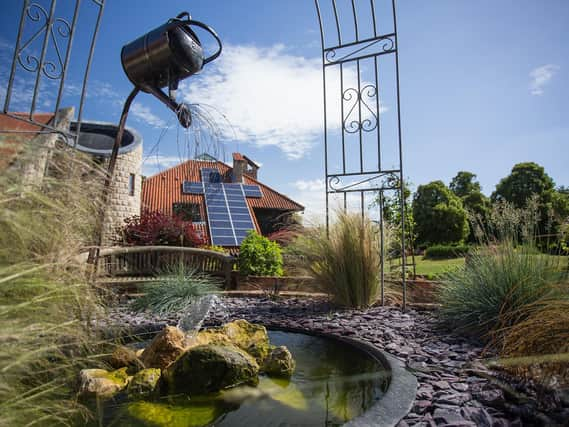OPINION: Martin House Children's Hospice's care doesn't stop when a child dies


Our bereavement service supports families often for two or three years following their child’s death, and that support encompasses the whole family – parents, siblings and grandparents.
We also take referrals for families who haven’t used Martin House, whether because their child had a life-limiting condition but weren’t known to us, or in the case of a sudden death.
Advertisement
Hide AdAdvertisement
Hide AdAt any time we have between 100 and 120 families on our caseload who we are actively supporting, and there can be several people within each family using the service. In the last two years we’ve had between 80 and 90 referrals each year.
When we start working with families, we usually see them on a one-to-one basis first. They need time to explore their own feelings and reactions, and understand their own grief before they are ready to hear other people’s stories.
We invite couples to join our parents’ support group about six to 12 months into individual counselling, whereas we bring children into our sibling groups as soon as they are ready.
We find that if we’ve done our preparation and made our introduction to families just right, they feel safe and there’s very little silence. We might start by asking them to tell us about their story and their child, and it helps them to open up. At the end of the session we’ll ask how it felt to do this, and was it what they thought it would be.
Advertisement
Hide AdAdvertisement
Hide AdParents can meet us together as a couple, or individually, depending on their needs. We prefer couples to stay together for sessions if possible, as if they are talking to us, they are also talking to each other.
Our aim all the way through is trying to help them find their own ways of coping in their own communities and lives, and as we go on supporting them, we are there for trigger points like anniversaries and birthdays.
We steer people away from saying they feel better, but instead talk about feeling different. Grief changes you, and it’s about learning to live with it, rather than getting over it.
Lots of parents have this idea that society puts on them about how long you should be grieving for, but we always say that grieving is a marathon not a sprint. For some, six sessions are enough, but for others it doesn’t touch the surface. We’re lucky we can be flexible and mould the service to the needs of each family.
Advertisement
Hide AdAdvertisement
Hide AdWe find counselling seems to come to a natural end, but we do negotiate endings with families – they are as important as beginnings – and we make sure they know that even when our involvement ends, our door is still open to them.
The pandemic has of course affected the way we provide our services. We’ve had to limit face to face appointments, and we’ve done much more by phone or Zoom.
This has had some unexpected benefits, as we’re reaching families we haven’t reached before, because they might not have transport to get to us, or have work commitments, so it has broken down potential barriers to accessing the service.
We’ve also run groups and family sessions on Zoom and they’ve worked very well. We’re probably going to do a mixture of virtual sessions and face to face in future.
It’s very humbling to work with families; that they will talk about something so deep and personal to us. It’s a real privilege.
You can find out more about Martin House at www.martinhouse.org.uk.